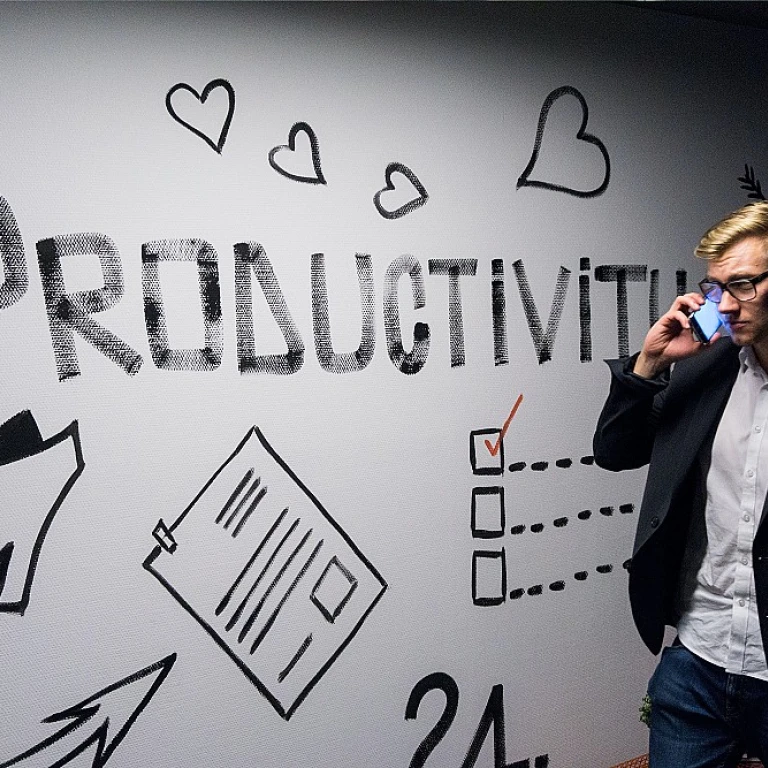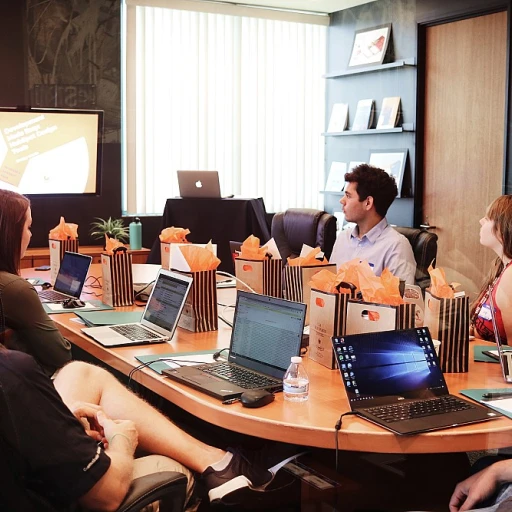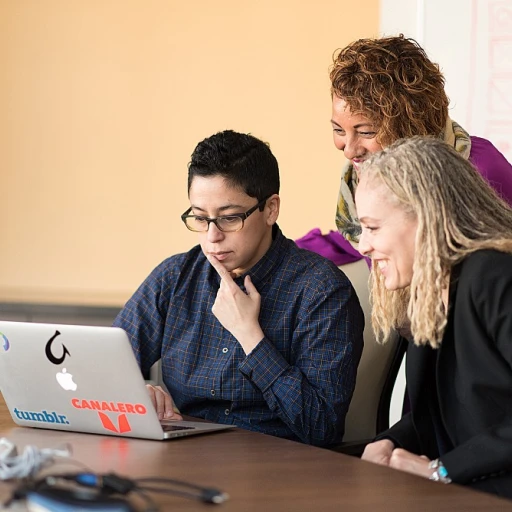
The Essence of Structured Mentoring
Structured mentoring sessions are a beacon of guidance in the professional journey. At its core, mentoring is all about sharing knowledge and experiences. When we introduce structure to this timeless practice, it enhances the effectiveness and impact, providing a clear path for both mentors and mentees.
The Heart of Structured Mentoring
Think of structure as the framework that holds a mentoring program together. It goes beyond casual coffee chats and helps in creating an organized system that ensures new skills are developed, challenges are addressed, and professional development goals are reached. Having a defined structure benefits both mentors and mentees by setting expectations, defining objectives, and scheduling regular check-ins.
Why should you care about structured mentorship? Well, it crafts a consistent approach to meetings, ensuring that both parties are on the same page. Structured mentoring is not a one-size-fits-all; it is flexible enough to cater to the unique needs of every individual. Participants agree on a set of goals from the get-go, allowing them to measure progress and celebrate wins along the way.
Why It Works
Structure in mentoring relationships provides clarity and purpose, creating a productive environment for growth. It guides the mentor meeting with an agenda, allowing mentors to provide constructive feedback more effectively. Mentees arrive prepared, knowing what they want to tackle in each session. This planning saves time, makes meetings more meaningful, and helps in identifying action items that contribute to a fulfilling mentorship experience.
Such structured programs often include goal-setting frameworks, regular mentorship meetings, group mentoring options, and even mentoring software to keep everything organized. They act as a roadmap, charting the course of the mentorship journey and ensuring successful mentoring.
As part of a mentorship program, having a structure supports the continuous learning and development of skills needed for career progression. By implementing these principles, you can boost the confidence of mentees, make the most of mentoring sessions, and create long-lasting mentoring relationships.
Want to enhance these skills even further? Take a look at how mentor training programs can make a difference.
Crafting a Framework for Success
Creating a Blueprint for Effective Mentorship
Crafting a winning plan for mentorship isn't just about schedules and agendas. It's an art. Our fellow mentors often share stories about their first mentor meeting—full of excitement but also nerves. To smooth out the jitters, think of it like making a playlist for a long drive. You need moments of energy, reflection, and motivation. Start by setting specific goals both for yourself and your mentee. This isn't about a checklist but a shared vision of growth.- Discuss Long-Term Career Goals: A mentor's job is to listen and help chart a course that feels achievable and ambitious. Guidance here is more about asking the right questions than giving directives.
- Set Short-Term Achievements: These bite-sized goals allow both mentor and mentee to see progress across mentor meetings.
Establishing a Structure That Works
While flexibility is key, having a rough template or structure for each meeting brings focus. A simple format includes a quick check-in, discussing challenges, sharing feedback, and reviewing action items. Think of it like organizing dinner with a friend—you wouldn’t just sit around and stare at each other. It’s this structure that will help fuel productive and meaningful conversations.- Regularly Scheduled Meetings: Consistency is the cornerstone. Whether weekly or monthly, keeping to a set time respects both parties’ commitment.
- Flexible Yet Focused Agenda: Don't be afraid to adapt based on what's needed that week.
Engaging in Open Communication
Effective mentoring is grounded in genuine conversation. It’s about the mentor being comfortable in sharing their personal experiences and expertise. While technical skills are crucial, emotional skills, like empathy and patience, often take more practice. Actively listen to your mentee’s ambitions and frustrations. Feel free to share your journey too. This openness fosters a trusting mentor-mentee relationship that becomes the bedrock of success.- Encourage Honest Feedback: Constructive feedback is a two-way street, where improvements can be made on both sides.
- Use of Mentoring Software: In some mentoring programs, tools can help in tracking progress and ensuring nothing falls through the cracks. This can be particularly helpful in group mentoring scenarios.
Building a Strong Mentor-Mentee Relationship
Establishing Connections for Growth
Building a solid mentor-mentee relationship is like nurturing a plant; it requires time, patience, and understanding. With the right approach, both mentors and mentees can flourish, creating a successful mentoring environment. Here are some insightful strategies to get the ball rolling in your mentoring session.Begin with Clear Communication
An essential step in fostering a strong mentoring relationship is establishing a foundation of open and honest communication from the start. This sets the tone for all future mentor meetings. Mentors should take the time to actively listen to their mentees, allowing them to express their thoughts, ambitions, and challenges freely. By doing so, mentors will help mentees feel supported and understood.Determining Common Ground and Goals
Successful mentoring partnerships are forged when both parties share common goals and objectives. It's important for both the mentor and mentee to discuss and outline their expectations. Setting clear, achievable goals helps create a roadmap for development. Remember, continuous growth often requires a balance of guidance and achieving milestones. Clear goals serve as steady action items during mentoring sessions.Consistency is Key
Consistency in meetings is a cornerstone of effective mentoring. Regular mentor meetings allow for a structured mentorship experience, ensuring both parties stay engaged and motivated. Whether it's weekly or monthly, maintaining a regular schedule reinforces trust and commitment to the mentorship process. These consistent interactions help mentees take constructive feedback and apply it to real-world situations, just as they would in a structured mentoring program.Cultivating Mutual Respect
Respect is a two-way street in any mentoring relationship. Mentors should respect the mentee's experiences, regardless of their career stage, and mentees should appreciate the wisdom their mentors bring to the table. Respect encourages an environment of learning and openness, crucial for the growth and success of both mentors and mentees.Shared Learning and Development
Mentoring is as much a learning experience for mentors as it is for mentees. Sharing experiences and knowledge allows mentors to reflect on their own development, while mentees gain insights and skills. Incorporating group mentoring or using mentoring software can offer diverse perspectives, making the learning experience even richer for all involved. By focusing on these areas, mentoring relationships can become a source of inspiration and professional development for both parties. For more insights into creating a framework for success in mentorship, check out this program that delves into the finer distinctions between mentoring and coaching.Overcoming Common Mentoring Challenges
Acknowledging and Tackling Common Barriers
Successful mentoring programs often face hiccups that can test the strength and dedication of both mentors and mentees. But tackling these obstacles head-on not only paves the way for personal growth, but also for the growth of the professional relationship. Let's break down a few roadblocks you might encounter and how to kick them to the curb.Understanding Time Constraints
Time is a precious commodity in the fast-paced corporate world. Many mentors and mentees find it challenging to carve out time in their jam-packed schedules for regular mentoring sessions. This often leads to canceled meetings and missed opportunities for development.- Solution: Prioritize and schedule mentor meetings as you would any critical work engagement. Use technology like shared calendars or mentoring software to send reminders and keep track of sessions. Remember, consistent meetings foster a stronger mentoring relationship.
Communication Hiccups
Communication can sometimes feel like a game of broken telephone. Misunderstandings occur when mentors and mentees aren't on the same page about goals, expectations, or constructive feedback.- Solution: Start with a clear and honest conversation about expectations from both sides. Encourage an open line of communication throughout your mentorship program to ensure any misunderstandings are nipped in the bud promptly. This builds trust and shows that both parties value the mentoring relationship.
Maintaining Focus on Goals
It's easy to lose sight of the initial goals amidst the hustle and bustle of work life. Without a clear focus, session after session can start blending into one another with no real progress made.- Solution: Set actionable goals with clear milestones. Regularly review these goals during meetings to ensure both mentor and mentee stay on track and are accountable. This will help maintain momentum and ensure productive mentoring sessions.
Leveraging Technology in Mentoring
Tech Tools at Your Fingertips
As luck would have it, technology has stepped in to support mentors and mentees in carving out meaningful connections. These digital tools can enhance the mentoring experience by keeping everyone on track during meetings, especially when time is of the essence.
For those engaged in a mentorship program, there's a plethora of mentoring software options designed to foster better communication and goal-setting. A mentoring app or platform can serve as a virtual meeting space, allowing mentors mentees to share resources, track development progress, and get the most out of their mentoring sessions.
Smooth Sailing with Scheduling
In a world where every minute counts, time management tools can streamline the preparation and scheduling of mentor meetings. Utilizing shared calendars and automated reminders help ensure both mentor and mentee are on the same page regarding meeting times. A clear timeline helps reduce the stress of missed meetings and keeps the mentoring flow smooth.
Building Bridges Across Distances
One of the main challenges in mentoring is geographical separation. This is where video conferencing platforms swoop in as an absolute lifesaver. They enable real-time communication and provide a platform for face-to-face interaction, promoting a personal touch in the virtual mentoring relationship.
Get Feedback, Give Feedback
Effective mentoring thrives on constructive feedback, and digital platforms make it easier to document and discuss feedback. Through shared notes or comment sections, mentors will help mentees stay informed about their progress. Regular and structured feedback loops will only strengthen the mentor mentee relationship.
The right blend of technology can make a mentoring program not only efficient but also profoundly impactful. While technology certainly offers its advantages, it’s imperative to prioritize meaningful interaction over sheer tech reliance.













